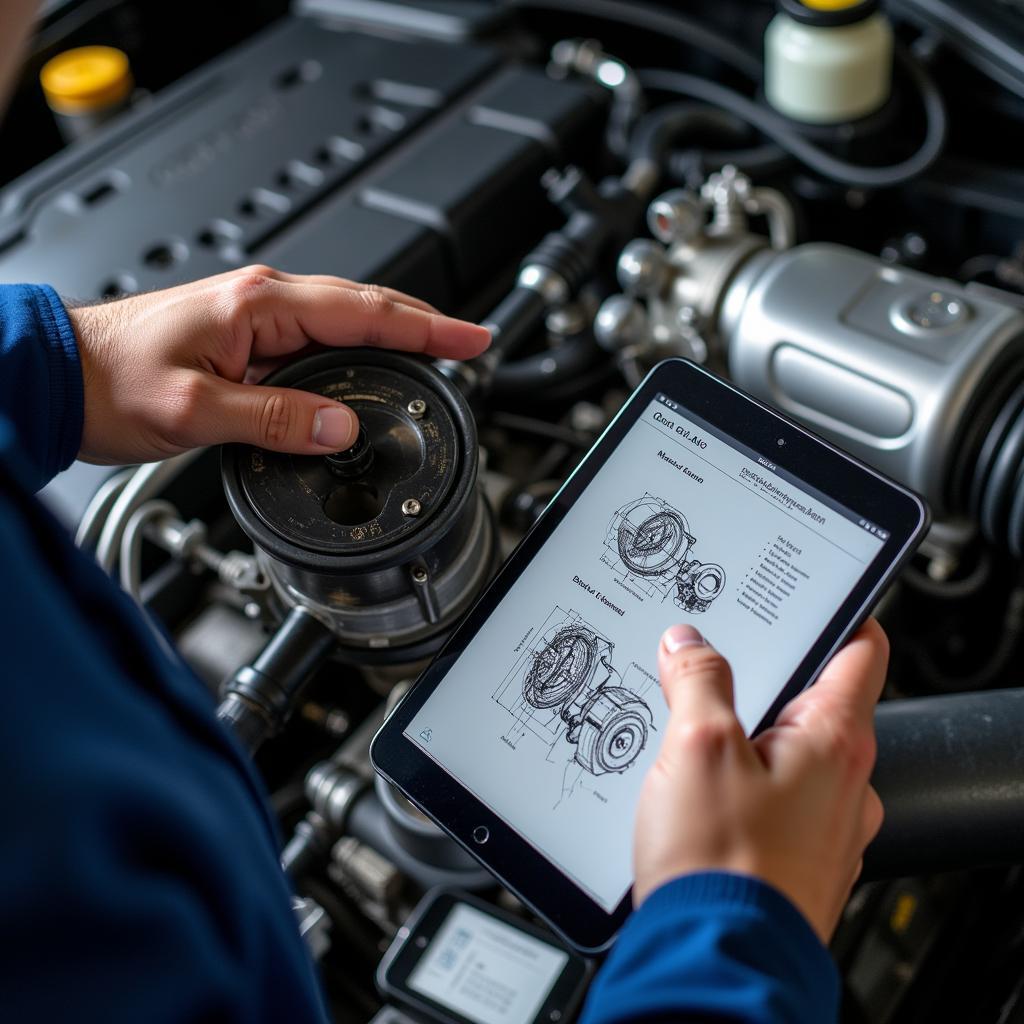Analytical method validation is crucial for ensuring the reliability and accuracy of test results, especially in a diverse region like ASEAN. Understanding and applying Asean Analytical Validation Guidelines is essential for laboratories, pharmaceutical companies, and regulatory bodies involved in quality control and assurance. These guidelines provide a harmonized framework for validating analytical methods, fostering confidence in the quality of products and promoting trade within the region.
Navigating the ASEAN Analytical Validation Guidelines
The ASEAN analytical validation guidelines aim to standardize analytical method validation procedures across member states. This harmonization simplifies regulatory processes, facilitates mutual recognition of test results, and strengthens the pharmaceutical industry within the region. These guidelines offer a detailed framework covering various aspects of validation, including specificity, accuracy, precision, linearity, range, detection limit, quantitation limit, robustness, and system suitability.
Key Parameters for Analytical Method Validation
Specificity
Specificity confirms that the method measures only the analyte of interest and is not affected by interfering substances. This is critical for accurate analysis, especially in complex matrices.
Accuracy
Accuracy measures how close the measured value is to the true value. It is usually expressed as a percentage recovery. Accurate results are fundamental for reliable decision-making.
Precision
Precision assesses the reproducibility of the method, meaning how close repeated measurements are to each other. It is typically expressed as standard deviation or relative standard deviation.
Linearity and Range
Linearity evaluates the method’s ability to produce results proportional to the analyte concentration within a given range. The range defines the interval of analyte concentrations over which the method is accurate and precise.
Detection and Quantitation Limits
The detection limit is the lowest concentration of the analyte that can be reliably detected, while the quantitation limit is the lowest concentration that can be accurately quantified.
Robustness
Robustness determines the method’s resistance to small, deliberate changes in experimental conditions. A robust method ensures reliable results even with minor variations.
System Suitability
System suitability tests verify that the analytical system is performing adequately before each sample analysis. These tests provide confidence in the system’s performance and reliability.
Implementing ASEAN Analytical Validation Guidelines in Your Laboratory
Implementing these guidelines involves careful planning, meticulous execution, and thorough documentation. Laboratories should establish standard operating procedures (SOPs) that detail every step of the validation process. Regular training and proficiency testing are essential to ensure consistent application of the guidelines.
Conclusion
The ASEAN analytical validation guidelines provide a crucial framework for ensuring the quality and reliability of analytical data. By adhering to these guidelines, laboratories can enhance their credibility, promote regional harmonization, and contribute to the overall growth of the ASEAN pharmaceutical sector. Implementing these guidelines is an investment in quality that benefits both individual laboratories and the ASEAN community as a whole.
FAQ
- What is the purpose of analytical method validation? (To ensure the accuracy, reliability, and consistency of analytical results.)
- Which parameters are typically evaluated during analytical method validation? (Specificity, accuracy, precision, linearity, range, detection limit, quantitation limit, robustness, and system suitability.)
- Where can I find the complete ASEAN analytical validation guidelines? (You can access them on the official ASEAN website and related regulatory bodies.)
- Why is harmonization of analytical methods important in ASEAN? (It simplifies regulatory processes, facilitates trade, and ensures consistent quality across the region.)
- How can laboratories implement these guidelines effectively? (By establishing SOPs, providing regular training, and conducting proficiency testing.)
- What are the benefits of implementing these guidelines? (Enhanced credibility, improved quality, and contribution to regional harmonization.)
- Who should follow these guidelines? (Laboratories, pharmaceutical companies, and regulatory bodies involved in quality control and assurance.)
Need help with ASEAN analytical validation? Contact us at Phone: 0369020373, Email: aseanmediadirectory@gmail.com or visit our office at Thon Ngoc Lien, Hiep Hoa, Bac Giang, Vietnam. Our customer service team is available 24/7.
